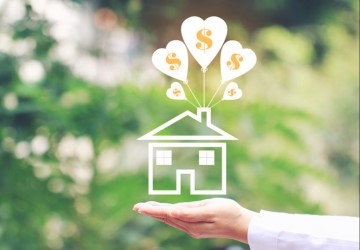A down payment is one of the most important upfront costs when buying a property. This is part of the purchase price you pay up front when you close. Generally speaking, a lower down payment at closing means you pay more interest and fees over the life of the loan (and vice versa).

Understanding Home Down Payments
Lenders use the amount you pay as a down payment to decide how much credit to give you and which type of mortgage is right for your situation. But what is the ideal down payment? Paying very little interest and fees will cost you over time. If you overspend, you could drain your savings and jeopardize your long-term financial viability.
This will help account for checkout costs, moving costs, and other monthly expenses. Ultimately, you determine the amount of your down payment: your income, your savings and your home buying budget.
Make monthly payment calculations.
Your mortgage repayment depends on the following factors: home price, loan term, property taxes, down payment, loan interest rate, and homeowners insurance. You can use an online calculator to calculate your monthly repayments.
You must first assess your financial situation and how they affect your savings. Online mortgage calculators can help you calculate mortgage payments and make informed financial decisions when buying a home. One of the checklists is to ask for an estimated deposit.
While a 20% down payment used to be common, many homebuyers now pay a 12% down payment.

What kind of house can you afford?
Your mortgage application requires your expected down payment as well as your income, employment, obligations and assets. Based on your application response, if you are pre-approved for credit, the lender will provide you with the maximum line of credit for which you are eligible. Lenders will also review your credit history and scores. These considerations come into play when a lender decides to give you the money to buy a home, how much to give, and under what circumstances.
Many potential homeowners can afford to spend twice their gross income on a home. For example, if you make $100,000 a year, you can buy a property for $200,000 to $250,000.
Consider your projected monthly mortgage payments instead of borrowing the maximum loan amount your lender will allow. Let's say you apply for a $300,000 mortgage. If your monthly payments and other monthly expenses make up more than 43% of your monthly income, you may struggle to pay off your mortgage during hard times. In other words, don't buy more housing than you can afford.
If you've been renting for a while -- or if you currently own a home and plan to buy it again -- you probably have a good idea of how much your monthly mortgage will cost. Renters should be aware that owning a home or condo can incur additional costs, such as property taxes, HOA fees, maintenance, insurance, and unforeseen repairs.
In addition to buying a home, you may need money for other financial goals, such as B. retirement planning, starting a family, saving money, and reducing debt. Mortgage payments that are too expensive each month can drain the funds available for some of these important goals.




